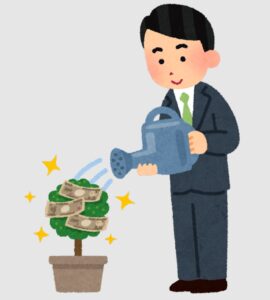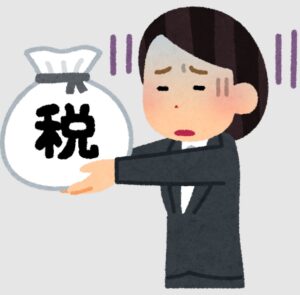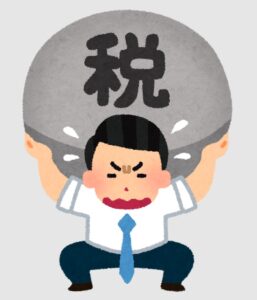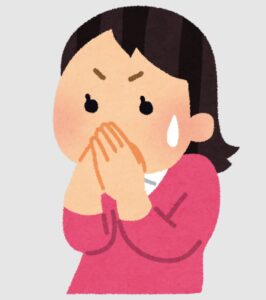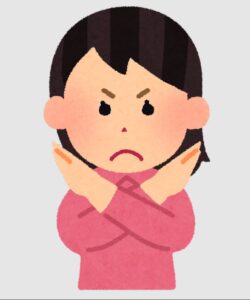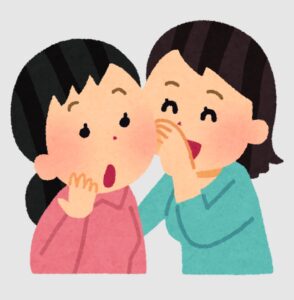管理人オススメコンテンツはこちら
「人によって違う|欲望を仕分けろ、自由はそこから始まる」
〜前回のつづき〜
● 経済的自由度をはかるための事前準備(つづき)
(3)ゆとり費(月予算)
これが③の箱に入ってきます。
ここには
無ければ死んでしまう
という訳ではないが
この支出が有ると
生活に豊かさを感じる
毎月支払いが発生するもの。
こういったものが入ります。
例えば
3-a)保険料
安心代として多く払っている分ですよ。
絶対に必要な分というのは
ここのゆとり予算の方の
保険料というのは
安心代として
「どうしても保険に入らないと不安なんだ!」
という人の
それが心の安心になるんだ
という事であればという話です。
私は
ゆとり費の中の保険料
というのは反対です。
あまりそこまで
いらないんじゃないかと
ずっとお話ししています。
もしも要るという人が
居ればですけどね。
3-b)美容院代
3-c)ペットの飼育費
ペットを飼ってる人にとっては
毎月必要になってくるんですけど
飼ってない人からすると
これはゆとり費になりますよね?
3-d)友達とのカフェ代、飲み会代
3-e)趣味代(漫画、ゲーム、スポーツ、音楽など)
無いと死んでしまう
という程じゃないけれど
生きていく為に絶対必要か?
無くても死なないけど
有ればハッピーというものが
該当しますね。
細かくちょくちょく
支払いが有るもの。
これがゆとり費になってきます。
(4)ゆとり費(年間予算)
無ければ死んでしまう
という訳ではないんだけど
この支出が有ると
生活に豊かさを感じる。
その上で毎月じゃなくて
不定期で支払いが発生するもの
というのが入るんですね。
例えば
・贅沢な服飾品(服、鞄、靴、小物など)
・旅行
・冠婚葬祭(結婚祝いなど)
・プレゼント代
などが該当します。
要は時々の贅沢で
このようなものが入ってくるんですね。
●ここまでのまとめ

あらためて
4つの箱を見てみると
こんな感じになります。
ここで
仲間分けのポイントが
2点有って
・ポイント(1)
何が基礎生活費で
何がゆとり費になるかというのは
人によって違う
まだペットを
飼ってない人にしてみれば
ペットの飼育費というのは
ゆとり費になるし
もう既に
ペットを飼っている人にしてみれば
これはほぼ基礎生活費に入ってくる。
・ポイント(2)
同じ項目であったとしても
基礎生活費に入るものと
ゆとり費に入るものが有る。
例えば洋服代なんかですね。
・最低限の洋服代
・プラスアルファのおしゃれな洋服代
これは
入る箱が違ってくる訳ですね。
生きていくために絶対に
・着ないといけない
・買わないといけない
のと
・この鞄ほしいなー
・いい服欲しいなー
という
プラスアルファの部分については
同じ洋服代でも
入る箱が違うという事です。
〜〜〜つづく〜〜〜
Special Thanks college president Ryo.
●おまけ
≪≪perplexityちゃんによる文章まとめ≫≫
「ゆとり費」とは、生活に絶対必要というわけではないものの、あることで心の豊かさや満足感を得られる支出を指します。
例えば、保険料、美容院代、ペットの飼育費、友人とのカフェ代や飲み会、趣味代などが毎月のゆとり費に該当し、旅行や贅沢な服、プレゼント代などは年間のゆとり費となります。
これらは人によって基礎生活費と区別されるポイントが異なり、同じ項目でも最低限必要なものは基礎生活費、プラスアルファの部分はゆとり費となります。
自分にとって何が基礎生活費で、何がゆとり費かを整理することで、経済的自由度や生活の満足度を高めることができます。
[1] https://31mono.net/039-2/
[2] https://cocomamablog.com/shisyutsu-bunrui/
[3] https://www.orixbank.co.jp/column/article/288/
[4] https://note.com/kakerimogu/n/ne965466024b0
[5] https://www.tr.mufg.jp/life-shisan/column/44.html
[6] https://www.univcoop.or.jp/press/life/report.html
[7] https://www.axa.co.jp/100-year-life/wealth/20191016/
[8] https://www.hajime-kensetsu.co.jp/leaseback/article/老後資金が足りない!必要な生活費の/
≪≪Chat-GPTくんによる英訳≫≫
~Continuation from the previous section~
【Preparatory Steps to Assess Economic Freedom (continued)】
(3) Discretionary Spending (Monthly Budget)
This corresponds to Box ③.
This category includes expenses that:
Are not essential for survival
But add richness and comfort to daily life
And occur on a monthly basis
Examples include:
3-a) Insurance premiums
These are payments made for peace of mind.
While there are insurance costs that are truly necessary, the ones in this discretionary category are those that people pay for emotional reassurance —
such as, “I just feel uneasy if I’m not insured.”
If the insurance gives them peace of mind, then it fits here.
Personally, I don’t recommend including insurance in discretionary spending —
I’ve long said that such extensive coverage may not be needed.
But, if someone feels they truly need it, then that’s their choice.
3-b) Hair salon expenses
3-c) Pet care expenses
For pet owners, these are monthly necessities.
But for those who don’t own pets, this would be considered a discretionary cost.
3-d) Social outings like coffee or drinks with friends
3-e) Hobbies (manga, games, sports, music, etc.)
Again, these are not essential to survival, but they bring happiness and enrich life.
They tend to be minor, recurring costs —
and thus fall under discretionary spending.
—
(4) Discretionary Spending (Annual Budget)
These expenses:
Are not critical to survival
But contribute to a sense of life enrichment
And occur irregularly, not monthly
Examples include:
Luxury clothing and accessories (clothes, bags, shoes, etc.)
Travel
Ceremonial expenses (wedding gifts, etc.)
Gift expenses
In essence, these are occasional luxuries that make life feel more fulfilling.
—
【Summary So Far】
Looking again at the four spending categories (or “boxes”), we can make the following observations:
Point (1): What counts as basic living expenses vs. discretionary expenses differs by person
For example, pet care costs:
For someone who doesn’t own a pet, it’s a discretionary expense
For someone who already owns a pet, it’s closer to a basic necessity
Point (2): Even within the same category, the type of spending can determine which box it goes into
Take clothing expenses, for instance:
Minimum clothing required to live → Basic living expense
Stylish, extra clothing → Discretionary expense
In other words, there’s a distinction between:
What you must wear and buy to live
Versus, “I want this bag,” or “I’d like some nice clothes.”
Even if it’s all technically “clothing expenses”, they belong in different boxes depending on purpose and necessity.
Special Thanks OpenAI and Perplexity AI, Inc


